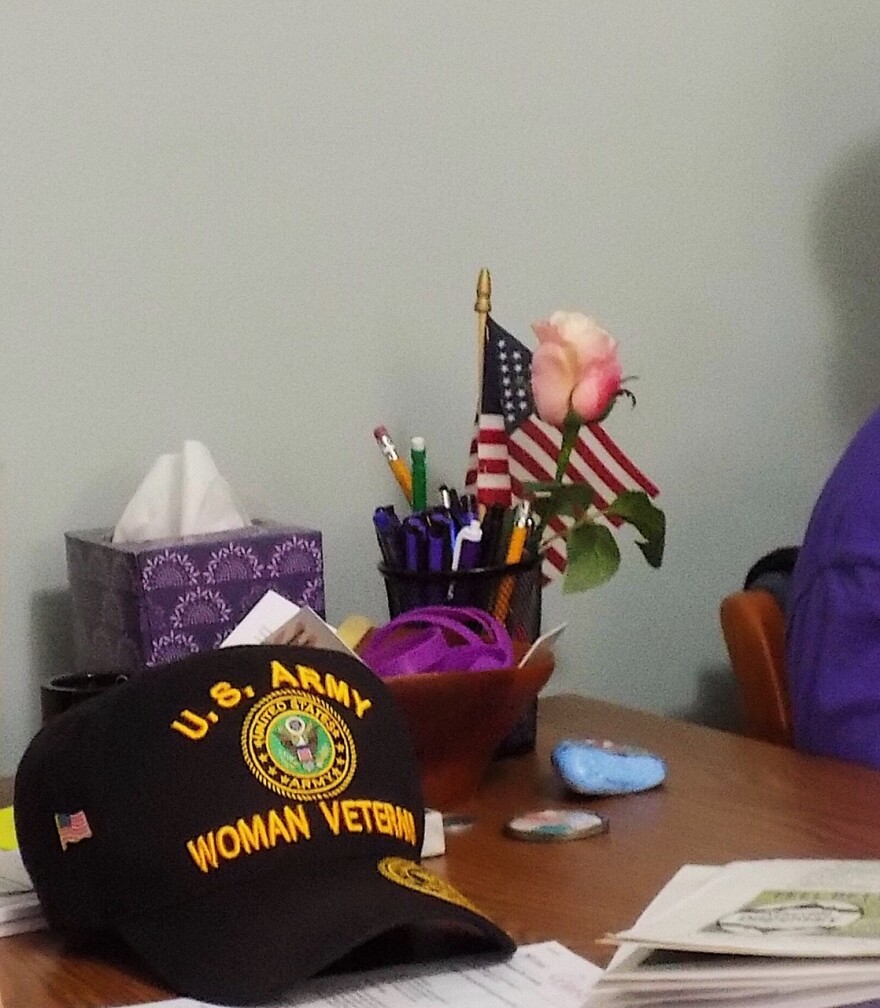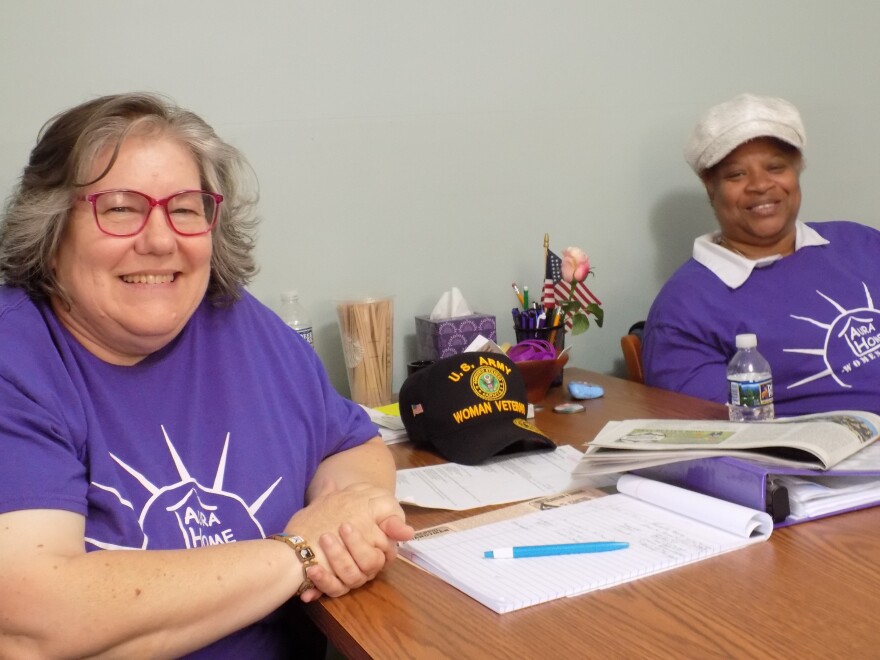Soldiers who return home from service often face new battles as they transition into civilian life — especially when it comes to finding a job. For women, the battlefront can be more immense.
The Department of Veterans Affairs reports women make up the fastest-growing segment of the homeless veteran population. Military Sexual Trauma, or MST, is often the reason why women vets find themselves homeless. A 2016 study published in the journal JAMA Psychiatry found veterans, both men and women, who experience MST face an increased risk of postdeployment homelessness.
When Staff Sergeant Alyce Knaflich was honorably discharged from her 20-year Army career, she went to Virginia Tech and graduated with a degree in poultry science. Her first job out of the military was at a factory in Iowa.
Knaflich didn’t stay in that job very long. She was the only female on staff, something she was accustomed to from her days in uniform.
“When they found out I had more education than they did, and I started suggesting improvements on the system, how to make it run more efficiently and smoothly -- and that’s what I always do, I even had that trouble in the military,” Knaflich said. “They didn’t like it because I was female and low man on the totem pole.”
Ultimately, she was fired.
“I went to the VA for help, and they diagnosed me with PTSD, due to my military sexual trauma, and all this sexual harassment in the miltary,” Knaflich said.
Military sexual trauma, is psychological trauma - the result of sexual assault sustained in the military. Some studies report as high as one in four female veterans have experienced sexual trauma during their military service.
For Knaflich, an incident 30 years ago is still painfully seared into her memory. She says she was raped by a fellow servicemember. He was ultimately court martialed and sent to military prison. But six months later, her perpetrator was released, exonerated, and got his rank back.
“I was punished because I spoke out against this atrocity. From that point on, I start protecting all the women I was associated in the military, especially ones that were less rank that I was. Because I knew it was happening to them,” Knaflich said. “I had many women veterans that were attacked, but they were too fearful to speak out against it.“
Without a job, Knaflich found herself living on the streets, for nearly 10 years. After getting connected to disability services and working numerous odd jobs — she found her way out. She now directs the Aura Home for Women Vets, in Asheville. Knaflich has helped 329 women vets since launching as a non-profit in 2014. Women, like Army and National Guard Sergeant Eleanor Gary.
“When you’re homeless, they give us food stamps, but where are you going to cook? You have no stove. You have no area to cook, so what’s the food stamps about?,” Gary said. “You need a place, and that’s what Aura Home gives you. A place.”
Like Knaflich, Gary also suffers from sexual trauma, sustained during her military service. She says she was raped.

“And when I reported it to my sergeant, he said, ‘what did you expect? You’re a female in a male’s army. And we don’t want you here taking our jobs. It was just a shocker,” Gary said. “They just don’t seem to care”
Gary says her husband divorced her when he found out she was raped. She was homeless in South Carolina, when she got connected to Aura. She says in addition to a home, food, and access to health services — living with women who endured similar difficulties was essential.
“Because you felt the camaraderie of the fact that we’ve been through similar things,” Gary said. “You could tell a military joke and you understood it, you could laugh because you understood it.”
Six months after moving into an apartment run by Aura Home, Gary got her own apartment. She’s been there a whole year.
“I got my medical stuff done, she helped get me through the VA and everything, and I got 100 percent disability,” Gary said “It’s only because Alyce stood by me and pushed me. We all fall sometimes, and well, she kept me going.”
Knaflich says of the more than 300 women veterans served by Aura Home, about 95 percent have military sexual trauma. She says the VA system doesn’t always recognize it as a condition requiring treatment, so these women fall through the cracks.
“And I think that’s part of why they can’t function in a job, especially if they’ve never been treated, or never been diagnosed,” Knaflich said.
The Veterans Administration didn’t return a request Friday to comment for this story.
She says most of the services Aura provides involves helping women veterans access the benefits they earned from serving their country.
“We are veterans. There should be no difference,” Knaftlich said.
This year, Aura Women’s Home launched a campaign to start a temporary home in Hendersonville to house 12 female veterans. So far, they’ve secured a building, a contractor and about $12,000 of the $350,000 needed to complete the home’s renovation.


